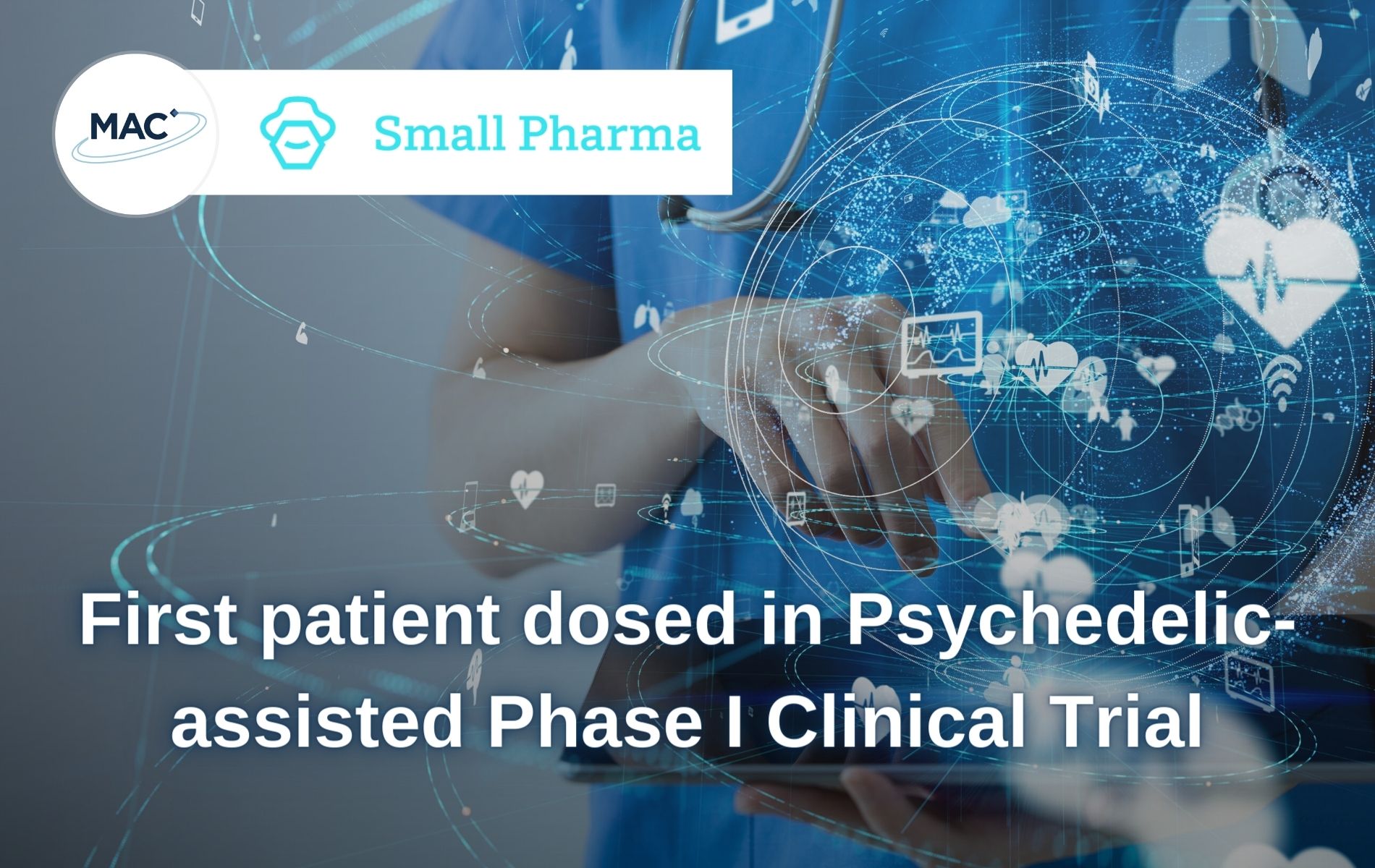Small Pharma Inc., a neuro-pharmaceutical company focused on the development of new psychedelic-assisted mental health treatments, have dosed the first patient in collaboration with MAC Clinical Research Manchester, in a First-in-Human Phase I Clinical Trial.
The clinical trial is evaluating a potential new drug called SPL028, one of its N-dimethyltryptamine (DMT) candidates with supportive therapy, in healthy volunteers. DMT is a powerful hallucinogenic drug found in several plants that produces psychedelic effects comparable to LSD and magic mushrooms.
Did you know? Plants that contain DMT have been used in religious ceremonies in some South American regions for centuries.
Small Pharma aims to deliver a treatment with a psychedelic experience as with psilocybin (a naturally occurring substance found in magic mushrooms) of 15 to 30 minutes and a significantly shorter experience than other psychedelics, such as LSD, which can last many hours.
The Phase I study is designed to evaluate the safety, tolerability, pharmacodynamics (what a drug does to the body), and pharmacokinetics (what the body does to a drug) of both intravenous (IV) and intramuscular administration of the study medication.
Through the clinical trial, Small Pharma and MAC Clinical Research hope that the study medication could go on to offer a treatment tailored to mental health conditions including depression, as well as other ways of administering it, potentially making it more convenient for patients.
George Tziras, Chief Executive Officer at Small Pharma, said: “This is a significant milestone for Small Pharma, with our second key program now in clinical development. The announcement on January 25, 2023 of the completion of our Phase IIa study demonstrates proof-of-concept for SPL026 in treating major depression. These encouraging results also provide support for our portfolio of DMT-based assets and give us confidence in driving forward both our SPL026 and SPL028 programs.”
To find out more about MAC Clinical Research’s current clinical trials and how you can get involved, visit our current studies webpage.




